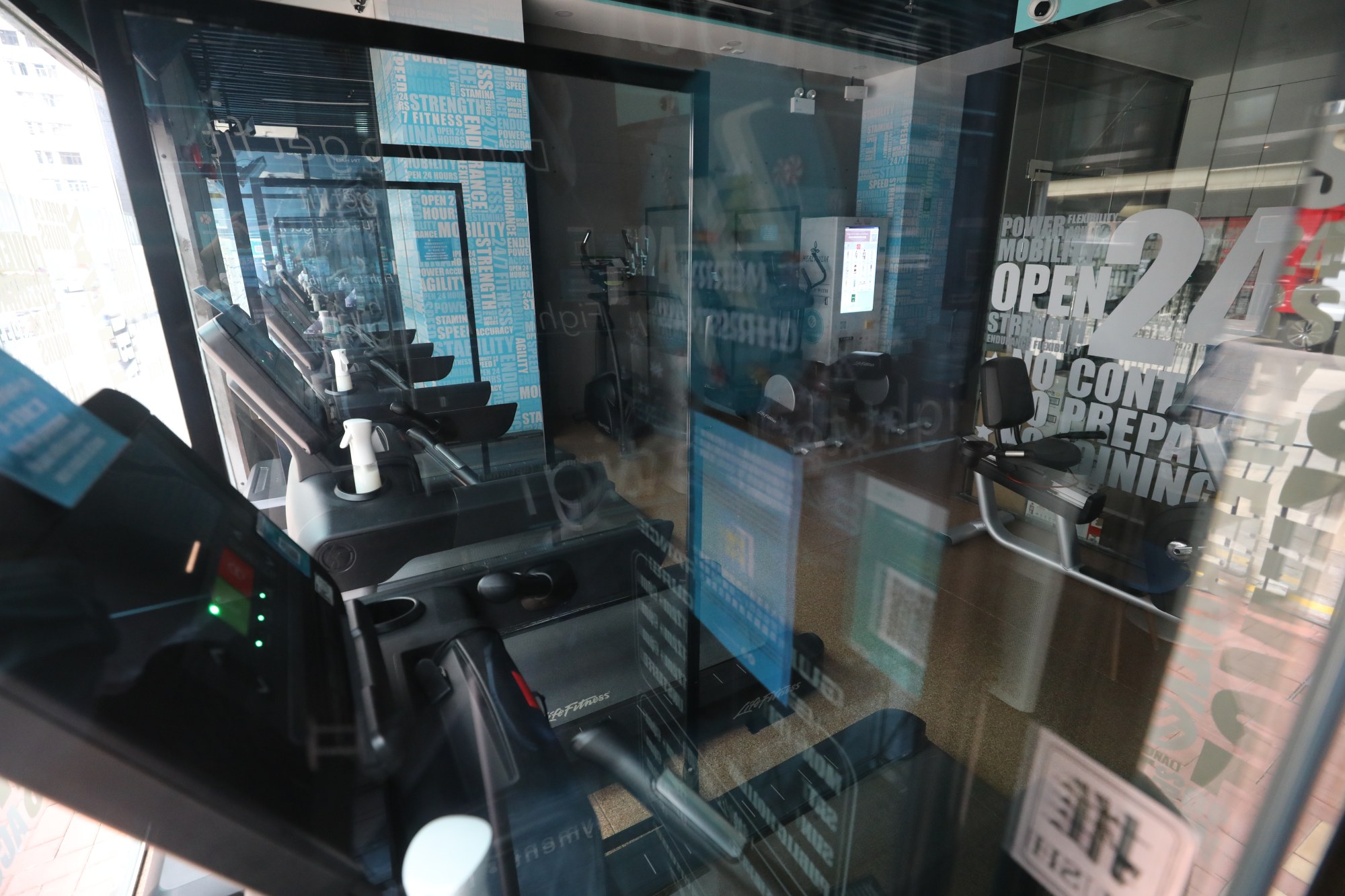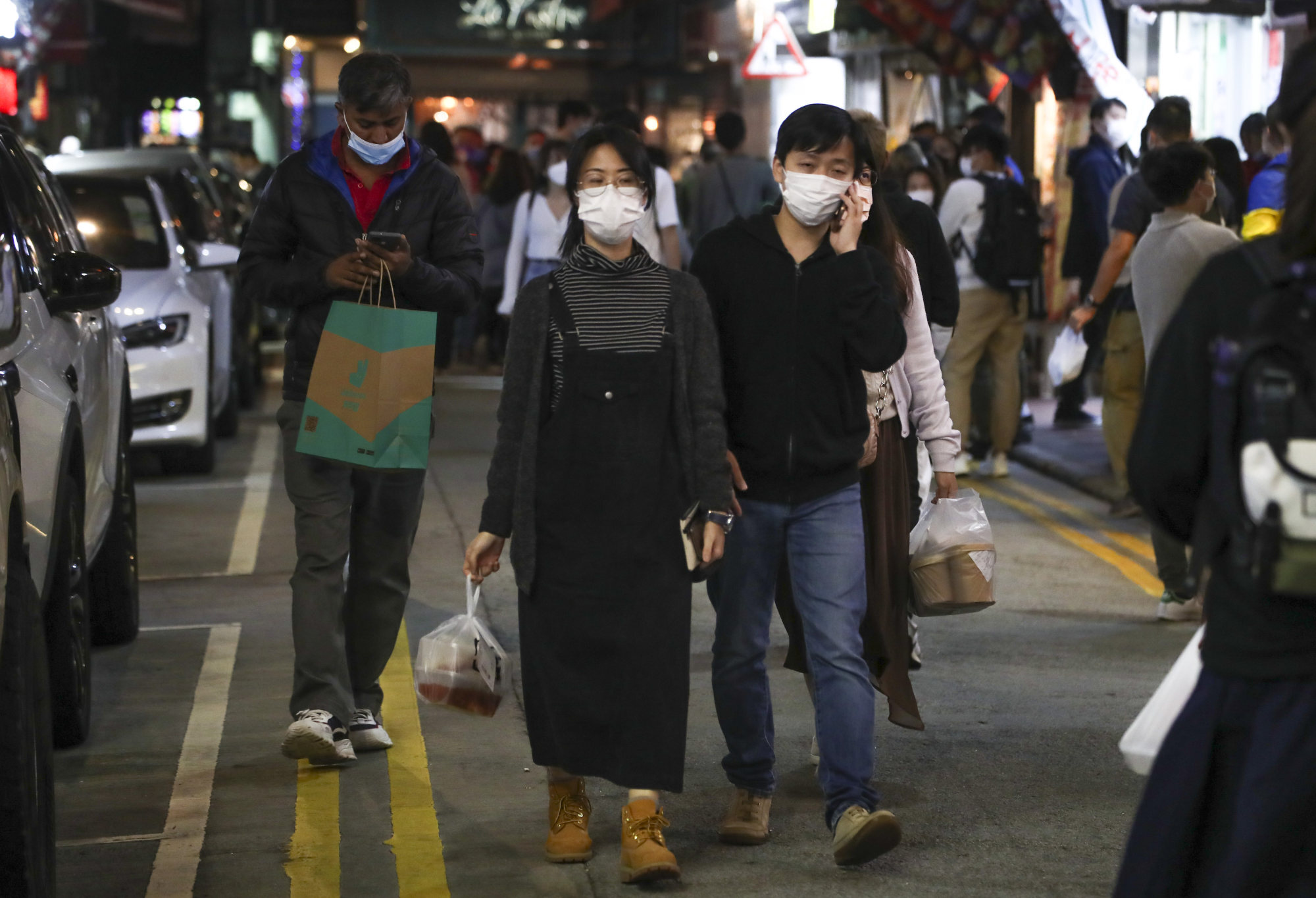
Coronavirus: struggling Hong Kong firms left ‘speechless’ by ‘peanuts’ HK$3.5 billion aid package
- Industry players say subsidies insufficient to cover losses and operational costs, hope for curbs to be lifted as soon as possible
- Extended social-distancing rules mean business will miss out on entire month’s worth of revenue amid peak Lunar New Year period
Industry players lamented that the subsidies were insufficient to cover losses and operational costs as a result of the restrictions, which caused them to miss out on the festive peak season. They urged authorities to lift the curbs as soon as possible.
Frederick Yip, executive director of travel agency Goldjoy Group, said he was let down by the measures aimed at supporting the struggling sector.
“We’re speechless, not just disappointed,” Yip said.
Hong Kong extends Covid-19 curbs, flight ban through Lunar New Year
Chief Executive Carrie Lam Cheng Yuet-ngor on Friday evening unveiled a HK$3.57 billion relief fund to help businesses affected by the tightened social-distancing rules, under which dine-in services after 6pm are banned and premises such as gyms, bars and beauty parlours have been forced to shut.
The two-week curbs have been extended for another 14 days until February 3, meaning businesses would miss out on an entire month’s worth of revenue amid the peak Lunar New Year period.
Lam said she hoped the curbs would be lifted on February 4 if there was no major outbreak of Omicron.

The tourism sector received a sizeable share of the latest subsidies, at HK$760 million, but that was little consolation for Yip, who said the extended rules meant that popular “cruises to nowhere” would continue to be halted.
“Tour agencies are dependent on ‘cruises to nowhere’ because it’s the only thing they can sell with scale to remain self-sufficient but even that has been crushed,” Yip said.
Ben Leung Lap-yan, charter president of the Licensed Bar and Club Association of Hong Kong, described the financial aid as peanuts while the extended social restrictions were akin to sprinkling salt on the heavily wounded industry.
“The bar industry has been cooperative with government policies such as vaccination, but we still end up the target of temporary closures,” he said, adding authorities had ignored the industry’s calls for subsidising rents during closures.
Karaoke parlours, bars, pubs and nightclubs are each eligible for HK$25,000 in subsidies.

Under the latest tranche of the relief fund, some 2,100 fitness centres would be entitled to a one-off subsidy of HK$50,000, half of the amount they were allocated in the fourth round.
Marc Guyon, owner of MGK Fight Club in Discovery Bay, said the sum would only cover urgent costs such as salaries but would not be enough for the rent.
“It’s bad news,” he said. “Right now, the HK$50,000 subsidy isn’t going to help much. For rent, we have to rely on the understanding and mercy of our landlord.”
“Martial arts is one of the worst-affected because it is a contact sport, you need a partner to train with. It’s not like yoga or fitness which you can do through a video,” he said.
Gyms have been ordered to shut three times for more than 150 days since the pandemic hit. They were allowed to reopen in mid-February last year, but were forced to close again on January 7.

The catering sector warned of looming unemployment and heavy losses arising from the extension of social-distancing curbs even though the government had earmarked the lion’s share of the subsidies, at HK$1.76 billion, for the industry.
Federation of Restaurants and Related Trades president Simon Wong Ka-wo said the extension would bring about a 40 to 50 per cent drop in revenue from normal days.
“We usually can make revenue of at least HK$300 million during Lunar New Year,” Wong said, adding the sector was suffering HK$150 million in daily losses under the dine-in ban.
The heaviest casualties would be Chinese restaurants, which would lose nearly 90 per cent of their income without dinner and banquet bookings for Lunar New Year’s Eve, Wong said, adding that although many had switched to takeaway orders, that would form only 10 per cent of their business.
“The unemployment rate will definitely increase if restaurants cannot reopen in one or two months,” he warned.
As for the city’s 11,000 beauty and massage parlours, subsidies will range from HK$15,000 to HK$50,000 per establishment, depending on the number of workers. There is a cap of HK$1.5 million for a beauty parlour chain.
Federation of Beauty Industry chairman Nelson Ip Sai-hung said the curbs would deal yet another blow to the battered sector and forecast a loss of HK$3 billion in January.
“The period before Lunar New Year is usually the busiest time for us when we have our best sales performance of the year, but now we have zero income,” he said.
Ip said he felt disappointed about the new round of support compared with previous subsidies, describing them as “utterly inadequate” for the industry.
Fitness centre owners ask for fewer restrictions and more funding
He also noted customers had lost confidence in buying prepaid treatment or service packages because of the sudden closures.
Live performers, who are usually freelancers, were not given any direct subsidies in previous rounds, apart from those who were fully employed by bars and hotels that applied for the government’s previous employment support scheme.
This time, about 6,000 individual arts practitioners and freelancers are eligible for a one-off subsidy of HK$5,000.
About 120 performing arts groups could also receive a one-off subsidy of HK$40,000 each and 80 companies that organised pop concerts could get HK$50,000 each.

Lito Castillo, chairman of the Hong Kong Musicians Union, said the proposal was promising but there were still stumbling blocks.
“Some freelance musicians are permanent Hong Kong residents and others are not, so there will still be some people left out,” Castillo said. “The questions will also be on how the government will decide who is a freelancer.”
Castillo said the sector did not want to rely on subsidies and hoped the bars could reopen so the live performers could return to work.
Gym closures ‘destroying livelihoods’, fitness body warns
He said his union had considered hosting a charity concert to help those struggling in the music industry but that option was off the table as performance venues were also ordered to close under the social-distancing curbs.
Meanwhile, about 70 licensed Chinese mahjong and tin kau (dominoes) parlours would each get HK$50,000 under the fund.
Alex Ko Kin-luen, chairman of the Hong Kong and Kowloon Mahjong Shops Association, said the funding was insufficient to make up for losses in the month.
“The mahjong business is well-disciplined and we follow all of the government’s anti-epidemic measures, our ultimate goal is to reopen soon,” he said. “Every industry counts on staying open for business.”
Hong Kong has been facing an outbreak of Omicron infections since December 30, which ended its streak of no local cases for over 80 days.
All but three of the city’s border crossings have remained shut since February last year while 157 countries and territories are now listed as high-risk for Covid-19, meaning non-residents are barred from entry to Hong Kong.
Such measures have hammered the once-vibrant tourism hub to a standstill.


